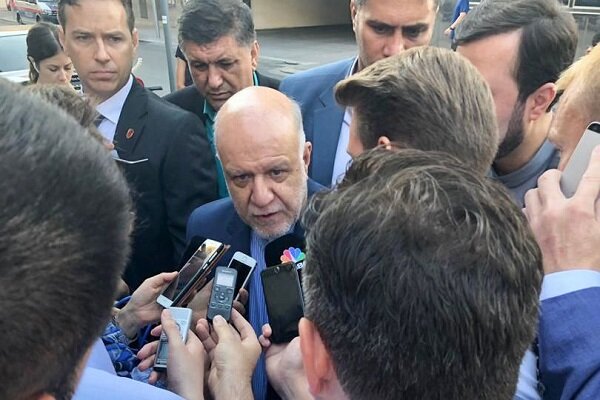“Iran won’t leave OPEC but I believe OPEC is going to die. It’s going to die with these processes,” he told reporters after arriving in Vienna on Monday.
Iranian Minister of Petroleum Bijan Zangeneh said he had no problem with output cut, slamming "unilateralism" as the biggest problem in the Organization of the Petroleum Exporting Countries (OPEC), Shana reported.
"I have no problem with a production cut. The main challenge to OPEC is unilateralism. The members need to discuss and decide together," Zangeneh told reporters.
"It hasn't been OPEC’s norm that two people decide outside OPEC and then the organization approves the decision. This is the biggest threat to OPEC.”
His comments came after Russian President Vladimir Putin said at the weekend that Russia had agreed with Saudi Arabia to extend by six to nine months a deal with OPEC on reducing oil output, Reuters reported.
“If OPEC wants to be alive it should decide inside OPEC not to receive instructions from outside OPEC. We are not here to stamp decisions made outside of the organization,” Zangeneh said.
“We want to live in a peaceful environment, but the US and some other neighbor countries in the Persian Gulf want to put pressure on us. It’s very unfair because we have no problem with the international agreement [JCPOA] that we have signed, the US has jeopardized the deal and we want all the international powers to comply with the agreement.”
Referring to the EU-established financial mechanism for trading with Iran, dubbed INSTEX, he noted that the money of Iran’s oil export should be injected to the channel. “Without money, or with just 3 to 4 million euros, this mechanism will not work.”
Zanganeh is set to attend the 176th OPEC meeting in Vienna on Monday.
Extending the OPEC+ deal to cut output by 1.2 mbd as well as reducing production by up to 1,800,000 barrels per day are the likely scenarios to be discussed during the meeting.
The 14 OPEC members will also decide on the new secretary general of the organization; however, most analysts say that Mohammad Barkindo’s post as OPEC secretary general will be extended for another three years.
At the 175th OPEC meeting, 14 members of the organization and their allies decided to reduce their crude oil output by 1.2 mbd to restore the prices and balance the market for a six-month period; a decision that was implemented on January 1, 2019.
MNA/SHANA/TNA2044062
